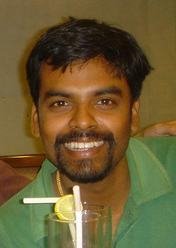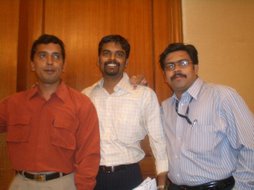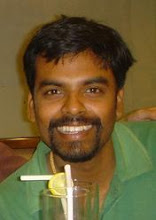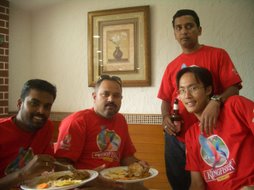Being a ardent football fan especially the English premier League, I thought this article by Antony Sutton ont eh pedigree that defines a club being big is a good and informative article. Courtesy Espn Star.
I always have a quiet chuckle to myself when I hear Chelsea described as a big club. If three championships and four FA Cups in 102 years make a big club then ok but who has lowered the bar to greatness?
Wolverhampton Wanderers likewise have three titles and four cups while Sheffield Wednesday have four titles and four cups; are they big clubs? What makes a club big? Is it purely their current record and if so, are Arsenal a big club? They have won nothing for a couple of years after all. Success obviously plays a role in defining a club as big but surely so do history and tradition? It is these qualities that get passed from father to son and it is the stories of the past that warm us during drab 0-0s when we almost wonder why we bother. But success? Success is often so transient, so fleeting. Wolves were massive in the 1950’s, champions three times and runners-up twice but little before and little since. For their fans they are of course the best and biggest club in the world but in the wider scheme of things? Just another club who has had some glory but now plod along waiting for a sugar daddy to open his wallet.
To be a big club then you need sustained success. A collection of pots and trophies spanning the decades, each pot with its own story and legend. Liverpool of course fall into this category. A record 18 league championships since 1900, seven FA Cup wins since 1965 and enviable success in European competition. But there’s something else about Liverpool. There is a glamour attached to the club, the Kop, You’ll Never Walk Alone, Bill Shankly. You can’t buy glamour, it is an unquantifiable essence that either attaches itself to your club or it doesn’t. It’s passed down over the years from Ian St John to Keegan to Grobbelaar’s shaky knees routine in a European Cup Final. It’s beating AC Milan on penalties coming from behind, it’s the Kop in full voice. It’s the many things that make up the Liverpool experience and keep people round the world supporting them even while the Premiership evades them.
Liverpool became successful through shrewd management. This summer they signed Fernando Torres for a fee that could have paid off a small African nation’s debt but it’s worth recalling in years gone by Shankly and Bob Paisley did their shopping at the corner store. Kevin Keegan, Phil Neal, Ray Clemence and co., these guys were picked up for a song from lower division clubs and put in the reserves to learn the Liverpool way. It takes a keen eye to spot talent and this perhaps is one skill missing from managers of today with the possible exception of Arsene Wenger. Indeed, not until Keegan left in 1977 did Liverpool really splash the cash on one player and that was to sign some guy named Kenny Dalglish. While Keegan hit the headlines players like Neal performed steadily and consistently and became part of the legend that is Liverpool today.
Manchester United of course are big. They won their first Championship back in 1908, their first cup of 11 a year later and have been successful ever since. But while Liverpool are big in terms of trophies and the glamour associated with the club United are big in a different way. They are England’s premier celebrity club where the players are just as likely to be the headline makers as the club itself and the club shop is as much a tourist site as Buckingham Palace is in London. Be it the inimitable George Best, Bobby Charlton, Denis Law or the 21st century vintage of Beckham, Ronaldo and Cantona. United’s appeal is as much pop star as football. Ronaldo’s chest and smile are as much PR as anything the club does on the pitch; the tours of Asia resemble Beatlemania more than any serious attempt at developing the game locally.
United have personified glamour ever since Best became the fifth Beatle and the media infatuated in where the genius Irishman spent the previous night. Perhaps only Manchester United could allow a professional footballer so much freedom. Perhaps only United encourage the impression that an individual player can be bigger than the club. From that night at Wembley in 1968 when they became the first English club to win the European Cup to Barcelona 1999, to nine Premiership titles, United have drank success often enough to be classed as a big club. But there’s more about United. It’s the Bests, Charltons, Beckhams, Giggs. It’s Scholes and the Nevilles and McIlroy. For all their largess in the transfer market, United have traditionally looked to youth.
And then we have the Arsenal. Their first title was 1931, their first FA Cup a year earlier so they came to the party later but since then Arsenal have consistently added to their haul, the 60’s being the only blot on the roll of honour with nothing to show. Not for Arsenal the sheen of the celebrity footballer, they share with Liverpool the team ethic. Until the Wenger years success in London came from a tightly knit bunch of local lads who had come through the ranks gelled with some smart buys in the transfer market. George, Merson, Adams, Thomas, Rocastle, Armstrong, Rice, ask any Gooner and the names fair roll off the tongue. Throw in smart signings like McNab, McLintock, Bould, Dixon and Fabregas and the picture you get is one of a mistrust of the ‘star’. Big money signings over the years haven’t always been great successes, think Blockley, Hudson, Reyes, Wiltord, Jeffers.
There’s an Arsenal Way of doing things that involves a lot of hard work mixed with last minute winners and this has become the fabric of the club. Don’t pull your weight and you’re gone. While the club develops a new youth policy looking for new Bradys and Mersons, Wenger seems happy enough to follow the old Anfield method of casting near and far for talent at bargain prices; the uncut diamond just a polish away from shining. Players who shun the limelight and have something to prove on the pitch. Arsenal may lack the glamour of United, they’re a tad traditional but the fans love them for it. Even now as everyone billionaire lines up to throw cash at English football Arsenal sit back and pooh pooh the idea. They have their traditions and values and will stick to them as long as possible.
And Chelsea? Throughout their 100 + year history they have had little in the way of success. Their previous golden age came in the late 60’s - early 70’s when the King’s Road was the centre of the music and fashion world and Hudson and Osgood the lords of the Bridge but it was ephemeral. One FA Cup in 1970 and a Cup Winners Cup a year later was it until 1997 when Chelsea appointed Ruud Gullit. Since then, Chelsea have won trophy after trophy with two Premiership titles and three FA Cups plus the odd League Cup and another Cup Winners Cup. A golden era for sure but not enough to make them a big club. Their policy of signing established stars from the most expensive boutique falls way short of Manchester United and Arsenal’s method of mixing youth with experience. Indeed there is something obscene in the whole notion of using cold hard cash and nothing else.
And that is maybe another dynamic into what makes a big club. Liverpool, Manchester United and Arsenal have won trophies over many decades and done so with a touch of class. Chelsea, the brash young upstart, have come to the party throwing their weight around, acting big time Charlies. But it’s all an act. They are dancing to the tune of a flighty conductor and when he throws his baton away do you think those players will stick around? There will be a fire sale at the Bridge and plenty of bargains to be had. And guess who will be sniffing round with open cheque books and a century of pedigree behind them?
Wednesday, September 19, 2007
Subscribe to:
Comments (Atom)




